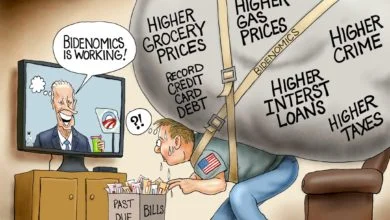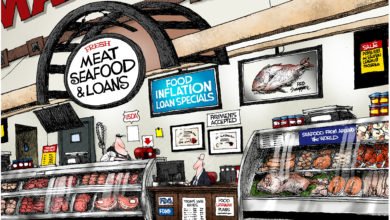An After-College Financial Plan
Graduating from college is one of life’s most exhilarating events. Finishing my degree, walking the aisle in cap and gown and receiving a fancy document in a leather-bound case remains one of the high points of my life.
Leaving college life behind, I was ready to live life to the fullest, whatever that meant — ready to begin life in the real world.
Unfortunately, I still had a lot to learn about managing finances. I knew nothing, and worse, wasn’t aware that I knew nothing. What was there to know, anyway?
Sadly, I am not alone in that regard, even after all these years. Today’s graduates are smart but generally financially ignorant.
Worse, hiring options for today’s college graduates are not so great: The current unemployment rate for graduates ages 20 to 24 is 4.4%. The average student loan debt tops $28,950 per student, according to Forbes, making financial security very difficult to achieve.
For college graduates gearing up to enter the real world, I offer the following for starting off on the right financial foot:
THE CRUCIAL FIRST SIX WEEKS
The decisions and choices you make in the first six weeks after graduation have the power to set the course of your life, for good or bad.
Of course, you’ve been a poor, starving student long enough. You deserve a new car. And certainly you need a better apartment. And some decent clothes. Oh, and who could possibly deny you a European vacation to celebrate this amazing achievement? You’ve been through so much.
You reason: Things are looking good in the employment department; you’re only young once; it makes sense to do this now before you’re tied down with a job, a home and kids. I could go on, but I’ll stop. And you should, too. Stop thinking like that!
Taking on a car loan or lease, the obligation of rent on an apartment or condo, climbing credit-card balances — all of that may seem innocuous, given the great job you plan to land somewhere, somehow. And that will backfire on you. Instead of launching you into the real world, it will send you into a downward spiral that collides with unpaid student debt, negatively impacting your life for many years to come.
That is the pattern that for so many has ended in divorce, bankruptcy and ruined lives. For me, the marriage endures, and we did not go bankrupt. But it took a full 25 years to recover — to get back to point $0. Imagine the lost opportunity.
If anyone offers you a contract to sign — for a car, an apartment, a credit card or other legal obligation — apply what you learned in elementary school: Stop, drop the pen and roll out of there fast.
Keep driving your clunker. Move home. Whatever it takes, do not create any new debt during these critical six weeks, and possibly much longer.
TAKE A JOB, ANY JOB
You need cash flow, so take the first job you can get. Then keep looking. Perhaps you’ve heard the term “stepping-stone?” Keep your eye on the goal and get to work reaching it. Stop whining and feeling sorry for yourself.
MAKE PAYMENTS
You need to immediately begin paying back your student loans. Do not luxuriate in the six-month grace period. That is not some kind of gift. Interest is accruing every day (unless you have subsidized loans, which almost no one has these days). That means every day your debt is growing because the interest you owe — but are not paying — is being added to your principal balance. Next month, you will pay interest on that interest, too. Ever heard the word “compounding?” Bingo.
Auto save. Even though in debt, you need to save money. You cannot continue to live on credit. When you set up auto pay or auto save, you eliminate the need to make a decision every payday. “Should I save money this week or go to a movie?” “Should I save this week or get those really cute shoes that are finally on sale?!” If you have to make that same decision over and over, pretty soon you won’t. You’ll get lazy, you’ll stop saving and just keep spending.
But if you are auto saving even $25 a week, you’ve eliminated that irritating decision. You’re on autopilot, and that’s a nice way to roll.
MONEY MANAGEMENT FORMULA
Think of your paycheck as 100%. Determine that you will save 10% of that into your contingency fund (emergencies). Determine to give away some amount as well (a declaration that while you may not have much, you have enough to share with others). I suggest 10%. That leaves 80%.
Determine your student loan payment. Now, use your math skills to figure out what percentage of your paycheck each month will be required to make that payment. Let’s say it is 25%. That leaves 55% for food, lodging, gas, insurance. It’s a good thing you have experience with living on little. That’s the way you are going to start out your life here in the real world.
If you are a recent grad and still reading this, I know something about you already: You are a cut above. I am humbled that you’ve stayed with me here and would be honored if you continue to do so in the future.
Please accept my heartfelt congratulations on a job well done! You have reached an important goal.
I wish you the best of everything in your career. Please let me know when you make that last student loan payment. Create a payment plan to do it in five years or less. Then just do it. Get it done!



